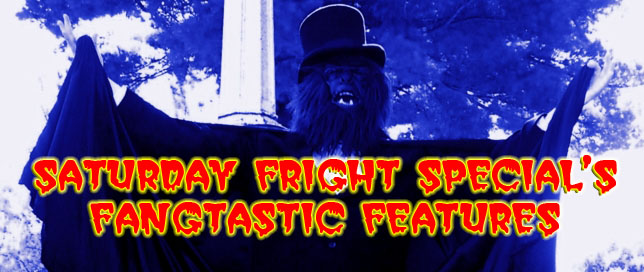
Reviewed by Rick Trottier
There is a wonderful starkness to Asian film that makes viewing it much like enjoying that mincemeat pie at a holiday. Since the pie only comes around once in a while, the treat is a little more exceptional due to its rarity. While Asian films are becoming a bit more commonplace here in The West, most people still do not get the chance to see them in general release since the majority of companies take a somewhat parochial view of their bankability, or renters will bypass them on the new release rack due to a lack of desire to deal with subtitles. It is an unfortunate view to take since films like BLACK HOUSE from South Korea have a lot to offer even when they are flawed.
BLACK HOUSE is the story of Jeon Juno, an emotionally tortured and overly compassionate insurance investigator who stumbles into a diabolical scheme to defraud his company. As Juno digs more deeply into what at first seems to be a suicide, all evidence points to a psychopath willing to stop at nothing to achieve their sinister goal. Before long, Juno’s girlfriend Mina, her co-workers and his own colleagues begin to fall prey to an increasingly grisly series of misfortunes, forcing Juno to face his foe and his past to discover the secret inside THE BLACK HOUSE.
Beginning patiently just as its distant Japanese relative, THE AUDITION, BLACK HOUSE develops its characters with care and sprinkles its imagery sparingly, but with purpose. A quiet sense of threat, deepening to enmity, settles over this film and begins to increase in momentum, even as the simplistic settings become steadily more sinister and the horrors of the plot become more frequent. Unlike many Asian films that take too long to get going, the cadence of BLACK HOUSE is more measured, grabbing the interest and the attention of the viewer like a noose around the neck. Despite obvious plot twists and predictable turns along the way, like a Shakespearean tragedy where the outcome is apparent but still satisfying, BLACK HOUSE’S story rushes forward to its inevitably gory crescendo and does it with a splendid mix of fine camera work, powerful performances that are just as stark as some of the colors and scenes and a reliance on story rather than needless bells, whistles, bangs and flashes. Without following in the footsteps of miserable Western “torture-porn” most of that bloodiness of the first three-quarters of the movie is implied and you don’t have to see actual dismemberment. Instead, you know that it has happened, which is just as unsettling. If BLACK HOUSE had maintained its adherence to the strengths that made it a gripping film for 75 minutes, it may have been a superb addition to the Asian horror canon. Sadly, it borrowed from its god-parent Takeshi Miike and his films like THE AUDITION and went down the darker path.
What crippled Miike’s AUDITION, no pun intended, was its reliance on gaudy cruelty and grotesque perversion in its last acts. While BLACK HOUSE doesn’t go quite that far, the last 25 minutes were unnecessarily gruesome. Part of this was the film’s steady rise in that direction conflict-wise, but the needless gore betrayed the smarter and slicker early nature of the flick. In addition, the ending seemed to go one FOREVER. Every time I thought, “this is where they’ll end it”, another mini-epilogue was grafted on. It was the only time I felt the Western urge to “tighten up” this film. Too often, American editors slice and dice Asian cinema, much to their detriment, but the denouement of BLACK HOUSE, despite its efforts to create artistic symmetry, just went on too long. In the end, it was regrettable. This movie really reeled me in for most of its duration and a cleaner, crisper ending would have set it even farther above the more pedestrian efforts of Messrs. Miike, Roth and Bousman.
BLACK HOUSE has a surprising batch of fascinating goodies in its extras menu. There is the making-of documentary called “The Truth about Psychopaths”. Added to that is the featurette “The Secret of the Black House”, which is a look at production design. Finally, there is a small set of deleted scenes. While this is not The Seven Cities of Cibola of Extras Menus, it is still a worthwhile collection of additions to an already absorbing motion picture.
One of the most enjoyable aspects of journeying outside the realm of North American cinema is that you get to see the craft and style of other talented professionals. An observant connoisseur can see their triumphs and tragedies, sample the bouquet and essence of the cultural accents, and make comparisons with their home nation’s products. BLACK HOUSE is a very good example of how even slightly flawed Asian cinema is worth the time of American film lovers. Hopefully, they will rise above any prejudices and give films like this a chance so that The Suits who run the Movie Houses will realize that a smorgasbord of theatrical offerings at the Box Office is better for everyone.
www.geniusproducts.com
www.cjent.co.kr/eng/index.asp


No comments:
Post a Comment